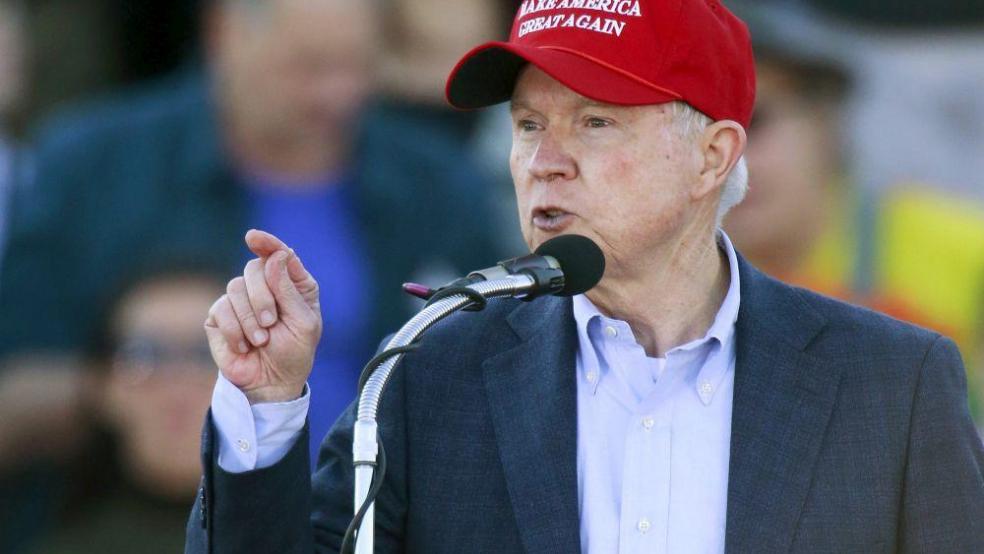President-elect Donald Trump ran for election on a platform built in large part on enforcing laws—however harsh—against illegal immigrants and a promise to bar refugees and others from Muslim countries from entering the United States. Now, experts say, with his decision to nominate Alabama Sen. Jeff Sessions to be Attorney General, Trump is giving one of the most ardent anti-illegal immigration voices in the US Congress tremendous power to reshape immigration enforcement in the United States.
Sessions, the first member of the Senate to endorse Trump’s candidacy, strenuously opposed bipartisan immigration reform bills that came before the Senate in 2007 and 2013, arguing that they were insufficiently strict and ultimately led to amnesty.
Related: Trump Has Another Job to Fill as Top US Intelligence Chief Resigns
In 2015, as the Republican Party took control of the Senate, he circulated what he called an “Immigration Handbook for the New Republican Majority.” In part, it reads, “‘Immigration reform’ may be the single most abused phrase in the English language. It has become a legislative honorific almost exclusively reserved for proposals which benefit everyone but actual American citizens.”
In Congress, he wrote, “The GOP should focus on discrete, targeted enforcement measures designed to have an outsize effect on reducing illegality, empowering immigration officers, restoring enforcement, and putting a stop to catch-and-release.”
As Attorney General, he would be in a position to actively encourage all of those things by setting policies that guide law enforcement agencies.
While the Justice Department does not directly enforce US immigration policy -- that is the domain of the Department of Homeland Security’s Immigration and Customs Enforcement division -- the attorney general has considerable influence over how the government’s power to detain, charge, and deport undocumented immigrants is exercised.
Related: Return of the Neocons: Trump’s Surprising Cabinet Candidates
Decisions by the attorney general about how willing the Department of Justice will be to defend challenges to strict interpretations of immigration law has a direct effect on how likely agencies like ICE are to employ them. During the George W. Bush administration, for example, the Justice Department became frustrated with having to defend the government from charges that immigration enforcement officers were abusing their authority to implement “expedited removal” of aliens. Use of the practice dropped off dramatically.
Experts like William A. Stock, president of the American Immigration Lawyers Association, say that under an Attorney General Sessions they would expect to see a revival of the use of expedited removal authority.
The attorney general also exercises control over the Executive Office for Immigration Review, a panel of administrative judges who adjudicate immigration court proceedings, appellate reviews, and administrative hearings.
“I’m most concerned about the precedent decisions that he would be in place to issue [rules] that would bind immigration judges,” said Stock. Based on his history and rhetoric, Stock said he would expect Sessions to “take very restrictive interpretations of the current law” that could “limit the scope of relief” available to individuals facing deportation proceedings.
Related: Trump Has Another Job to Fill as Top US Intelligence Chief Resigns
The news of Sessions’ appointment provoked anger and outrage from many civil rights advocates because of the lawmaker’s history of making racially charged comments. Indeed, in 1986, after President Ronald Reagan appointed him to a federal judgeship, a Republican-controlled Senate Judiciary Committee refused even to send his nomination to the Senate floor after hearing testimony about his history of racial insensitivity.
Marielena Hincapié, executive director of the National Immigration Law Center Immigrant Justice Fund, on Friday released a statement opposing Sessions.
“Under Donald Trump, Jeff Sessions has been pushed from the fringe into the center of American politics. As a result, women, immigrants, the Black community, the LGBTQ community, and anyone who cares about justice and equality for all are being pushed out. This most recent appointment should send chills down the spines of all Americans.”





